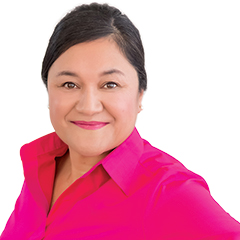From the CEO
Jul 7, 2016

 Chief Executive Officer,
Chief Executive Officer,
Te Rūnanga o Ngāi Tahu,
Arihia Bennett
Generation Kaumātua
When I started my first job at the Department of Māori Affairs (now known as Te Puni Kōkiri) back in the late 1970s, I can remember my take home weekly pay packet was about $44.00. As an office cadet I was grateful to be one of two interns chosen to start in what I thought was a fancy corporate role. I got to dress up, carry an important looking satchel (with nothing in it), as well as ride my Honda 50 scooter and turn up to work each day with a “helmet head”. I remember being like a sponge soaking up as much as possible from all the “grown-ups” around me, dreaming that I might become a hotshot supervisor someday. I recall this experience vividly as the workplace was inundated with older people who seemed to have been in the one job their whole working career. Through my eyes a 30 year-old was a 50 year-old, and a 50 year-old was a retiree in waiting…
Reel forward 35 years and as a baby boomer I’ve realised that I am now one of the 8000 registered Ngāi Tahu who are over 55. Reflecting on my perceptions back in the 1970s, I’ve arrived at the place in my journey where my focus is on the years ahead and how I keep myself relevant in a fast-changing world.
I can attest that things will go southwards if you don’t take good care of yourself. By some miracle my body has produced its own heater, and there is the matter of naturally changing hair colour. There is an emphasis on physical well-being as the doctor reminds you of the need to have a regular health check-up, especially when it comes to one’s womanly features. But there are also the emotional and social dimensions that we shouldn’t ignore, as these areas begin to impact on each other if they are not kept in balance. Keeping yourself active and engaged must be part of your changing lifestyle in order to keep your mind, body, and soul in sync.
Very soon the baby boomers will peak into the third age, and I am pondering on whether our country is ready for this. It is timely that Te Rūnanga starts to look at the role it could play in supporting the health and well-being of our kaumātua. For a number of years we have successfully invested in Ryman Healthcare with a regular annual sell-down on shares in recent times, as well as returning a healthy financial dividend. It is time to look at how our local communities can leverage this relationship and come up with suitable ideas for supporting our kaumātua.
We need to be thinking about broad-ranging services such as home-based support, community social clubs, marae, clustering of kaumātua cottages, extended whānau living, and retirement villages. If you are an older person or you have kaumātua in your whānau like me you will have witnessed how connectivity with mokopuna brings great joy, and being socially active is both motivating and stimulating. I guess because I am personally staring aging in the face in the not so distant future. It has got me thinking about the possibilities for me and my whānau, and for the iwi.